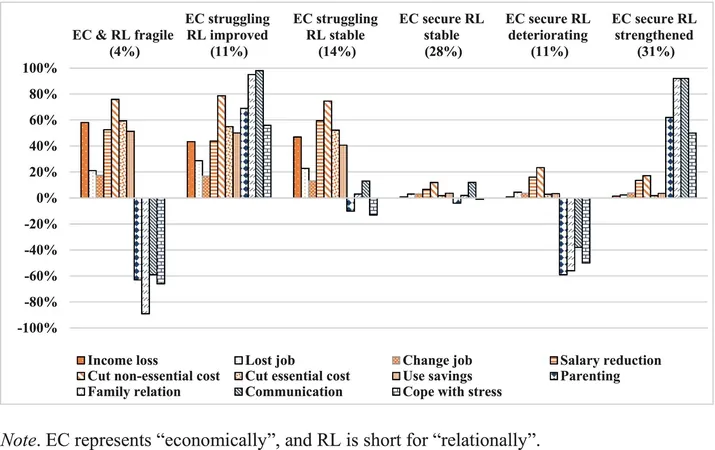
Unraveling the Mystery: How X Chromosome Inactivation Impacts Female Immune Responses!
2024-10-15
Author: Ming
Introduction
Recent research has unveiled fascinating insights into the sex differences in immune responses, particularly those linked to T cells. It's well-documented that females typically showcase stronger immune responses against infections. However, this superior defense mechanism comes at a cost, with women being significantly more prone to autoimmune diseases characterized by the overactivity of T cells.
The Role of X Chromosome Inactivation
Located within the School of Veterinary Medicine, a groundbreaking study led by Montserrat Anguera and her research team has concentrated on the role of the X chromosome in these immune phenomena. In many female mammals, one of the two X chromosomes undergoes a process known as X chromosome inactivation (XCI), effectively silencing the genes on that chromosome. This intricate process is crucial for maintaining cellular balance and is driven by the expression of Xist RNA, a long noncoding RNA molecule associated with the inactive X chromosome.
Key Findings on T Cells
Previous findings from Anguera’s lab indicated that unstimulated T cells lack Xist RNA and the associated epigenetic modifications on the inactive X chromosome. Interestingly, once T cells are activated by a pathogen or immune signal, the presence of Xist RNA is restored along with other crucial modifications. This led the researchers to probe into the mechanisms that facilitate the reactivation of Xist RNA and the extent of transcriptional silencing in T cells.
Role of NF-κB
Their pursuit has yielded significant results: maintaining X chromosome inactivation is heavily reliant on a transcription factor known as nuclear factor kappa B (NF-κB). This key finding establishes a novel connection between NF-κB signaling pathways—vital for T cell development and overall immune function—and the maintenance of X chromosome inactivation specifically in female T cells. These groundbreaking findings were recently published in the esteemed journal 'Science Immunology' and mark a pioneering stride in understanding female immune responses.
Statements from Researchers
Katherine Forsyth, a postdoctoral fellow affiliated with Anguera’s lab, expressed her enthusiasm, stating, 'The maintenance of X chromosome inactivation is essential for the health and functionality of female cells, particularly in T cells, which are integral to our immune defense. Our work links critical T cell activation pathways with this fundamental process specific to females.'
Future Directions
The ongoing investigation into NF-κB's role in T cells promises to enlighten the scientific community on the genetic and epigenetic factors that contribute to sex-biased immune responses, particularly during infections. As Anguera aptly describes, understanding the mechanics of healthy cellular states sets the stage for unraveling the complex relationships influencing X-linked gene expression and T cell behaviors in autoimmune conditions.
Methodologies Used
Notably, this study confirmed NF-κB’s influence on X chromosome inactivation in both mouse and human T cells through detailed genetic inspections and patient assessments. Employing cutting-edge techniques like allele-specific RNA sequencing and Cleavage Under Targets & Release Using Nuclease (CUT&RUN), the researchers meticulously mapped how stimulation alters the enrichment of heterochromatic histone modifications characteristic of the inactive X chromosome.
Collaboration and Insights
Forsyth elaborated on their pathway exploration, pointing out the established role of NF-κB activation following T cell receptor engagement, essential for effective T cell activation. The collaborative effort with experts in NF-κB signaling, such as Michael May from Penn Vet and Neil Romberg from the Children’s Hospital of Philadelphia, was instrumental in amplifying their research capabilities, allowing for deeper investigations into patient samples exhibiting variable immunodeficiencies, sometimes linked to NF-κB mutations.
Conclusion
Anguera concluded by reflecting on the power of collaboration within the scientific community, stating, 'This experience truly underscores the value of cooperation across institutions in pushing our scientific boundaries and elevating research endeavors.'
Implications for the Future
With this significant advance, researchers are optimistic that a better understanding of X chromosome dynamics will illuminate new pathways for addressing the sex imbalances prevalent in autoimmune disorders, ultimately improving therapeutic strategies and patient care.
Stay Tuned
Stay tuned as the full range of implications from this research unfolds, potentially revolutionizing our understanding of immunity and disease across genders!


 Brasil (PT)
Brasil (PT)
 Canada (EN)
Canada (EN)
 Chile (ES)
Chile (ES)
 España (ES)
España (ES)
 France (FR)
France (FR)
 Hong Kong (EN)
Hong Kong (EN)
 Italia (IT)
Italia (IT)
 日本 (JA)
日本 (JA)
 Magyarország (HU)
Magyarország (HU)
 Norge (NO)
Norge (NO)
 Polska (PL)
Polska (PL)
 Schweiz (DE)
Schweiz (DE)
 Singapore (EN)
Singapore (EN)
 Sverige (SV)
Sverige (SV)
 Suomi (FI)
Suomi (FI)
 Türkiye (TR)
Türkiye (TR)